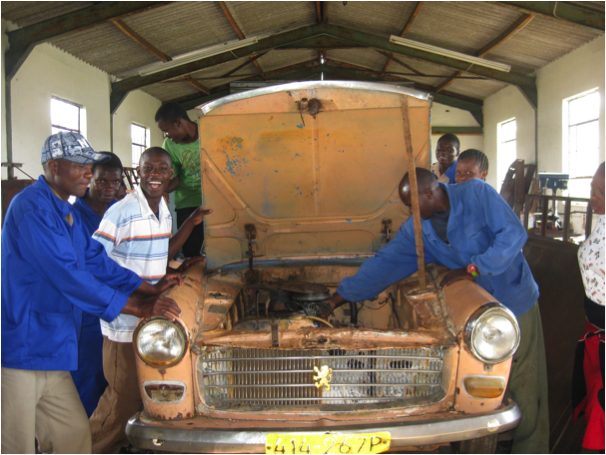Connecting to our Grantees
I live in a country where individuality is highly esteemed. But I believe that even as we treasure our own independence, we are nourished and empowered when we experience ourselves not as separate isolated people, but as part of a vast web of life, connected to others and using our passion and abilities to uplift the lives of others. I am privileged to work for an organization that allows me the opportunity to do just that.
It’s docket season at Firelight.
That means that over the next two months we will be reading, reviewing, and analyzing nearly 150 reports and proposals from organizations working to improve the lives of children and families in communities across southern and eastern Africa.
As we read through each report and proposal, we reflect on some key points:
- How effective is the program of support?
- Do the strategies promote empowerment rather than foster dependency?
- Does the report convey positive changes in the lives of children and families?
- Is the organization working with the local community in ways that build community ownership and strengthen local support for vulnerable families?
We analyze how each partner is developing organizationally. We also use this process to understand if and how each partner’s work aligns with our theory of change. We identify interesting patterns that we will further probe through our organizational learning agenda.
We use a follow-up question letter to get clarification on certain points or to probe for insights and lessons learned. The question letter also serves as an important opportunity to provide encouragement and support or to provide difficult feedback. Our objective is to engage partners in a reflective dialogue that will lead to more strategic choices.
The dialogue often helps us to more fully understand the challenges that community-based organizations face and the creativity and innovation they bring to this work in order to overcome the obstacles that stand in their way. And throughout the process, we learn about the places where they stumble and need mentorship, skills, or the encouragement to keep going.
We also get to celebrate their stories of hope.
Our seven-year partnerships provide us with a long-term perspective about the development of a community-based organization and its programs.
Over time, we also get to know some of the children they serve. For example, I got to see a photo of Gift Mutale, who lives in the village of Malole, which is in the far northern part of Zambia.
I met Gift in 2007 when I visited Malole Home Based Care (MHBC), a small community-based organization. This young man, who lost both of his parents to HIV/AIDS, receives support from MHBC.
Malole Home Based Care provides food packs for families as they help them start growing their own food. They provide home-based care for sick adults and home visits for children who are taken in by extended family. They also provide school fees to help children like Gift go to school. Their youth sports and recreation program teaches young people important life skills at the same time that it builds supportive relationships among the youth.
Gift is now in high school and performing well in his studies. I was happy to see a photo of him as he addressed a local crowd in his village. The opportunity to attend school is available to him only because Malole Home Based Care has committed itself to giving each child the very gift of childhood: a meal every day, the ability to go to school, a caring adult, and time to play.
The grantmaking team here at Firelight takes our duty to conduct responsible stewardship of the resources we provide very seriously. We ask our partners and ourselves tough questions about whether the proposal presented makes effective use of grant funds. We hold ourselves accountable, even as we hold our partners accountable for fulfilling their mission to serve.
Most of the organizations we fund will go on to receive another grant from Firelight.
But, in each docket, there are some organizations that raise deep concerns about what they are working on and how they are approaching their work, and we decide to end those partnerships.
But there is something else that happens in the process. We also deepen our relationships with our grantees and connect with the children and families that they serve.
It’s an intensive process. There is a lot of work to do and a lot of information to digest and interpret using new analytical frameworks. There are also administrative tasks that we must fulfill as a private foundation making grants to organizations in other countries.
But even as there is a lot of work to be done, we feel uplifted by being part of something much larger than ourselves: 150 organizations transforming the lives of thousands of individual children, families, and their communities.
Yes, I’ll admit it: I love my job!




